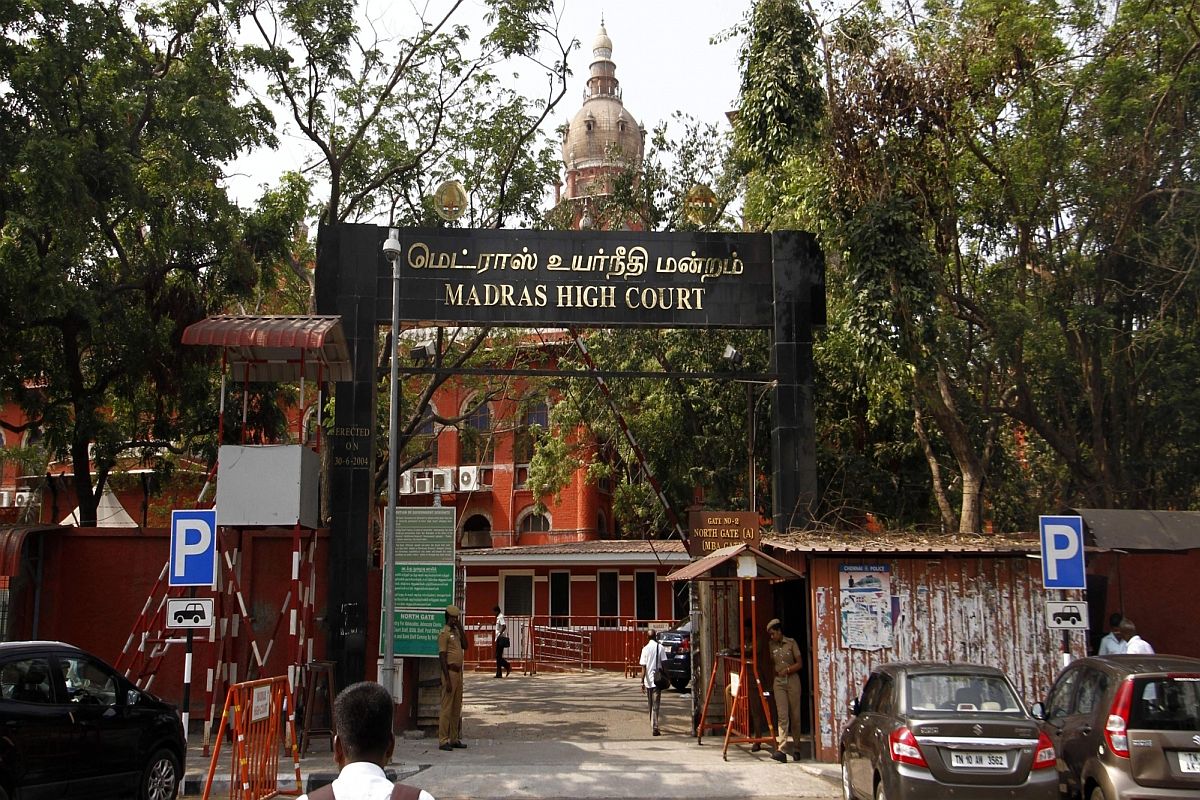The Tamil Nadu government will again come out with a proper law banning online games like rummy, said Law Minister S. Regupathy.
In a statement issued here, Reghupathy said public interest is important, by following due procedures and specifying valid reasons, the government will again come out with a law banning online games like rummy.
Advertisement
The Madras High Court on Tuesday struck down the law brought in by the previous AIADMK government banning online gaming in the state. The law also provided fines and jail terms for the violators.
Finding youngsters getting cheated and committing suicide and to protect the innocent citizens, the AIADMK government brought the law by amending the Tamil Nadu Gaming Act, 1930 (Tamil Nadu Act III of 1930), Chennai City Police Act, 1888 (Tamil Nadu Act III of 1988) and Tamil Nadu District Police Act, 1859 (Tamil Nadu Act XXIV of 1859).
According to Reghupathy, the court had said the government did not specify the reasons for banning online gaming when the law was made.
PMK founder S. Ramadoss urged the Tamil Nadu government to come out with law by rectifying the defects.
He said thousands of families in Tamil Nadu were happy when online gaming was banned last year while the Madras High Court order on Tuesday is disappointing.
With attractive advertisements, the online gaming companies lure the youth and then push them into the debt trap.
Ramadoss said about 25 youth committed suicide during the last couple of years as they were unable to pay back their debts incurred to play the online games.
He said the previous Tamil Nadu government had first brought an ordinance banning online gaming last November and later made it into a proper law this February.
As a matter of fact, it was the Madurai Bench of the Madras High Court in July last year that had suggested to the state government to enact suitable laws to regulate the online gaming industry.
Quashing the first information report (FIR) filed by the Kudankulam police against a school teacher who had watched a game of rummy played on a farm, the court expressed its concern at the unregulated growth of the online gaming industry.
Citing the laws against lottery and charging of usurious interest enacted by the Tamil Nadu government the High Court hoped that the state government shall take note of the present alarming situation and pass suitable legislation to regulate and control online gaming through a license, keeping in mind the law of the land as well as the judicial precedents in this regard.
“This Court is not against the virtual games, but, the anguish of this Court is that there should be a regulatory body to monitor and regulate the legal gaming activities, be it in the real world or the virtual world,” the court had said.
The court also said the government takes the views of the stakeholders before passing legislation in this regard.
The court also explained the modus operandi of online games.
“If X and Y want to play a game, both of them have to bet a sum of Rs 10/- (Say). The winner will get the amount that he put in place, ie, Rs 10/- and in addition to that, he will get an additional sum, say 75 percent that was put in place by the opponent, being the prize amount. The balance, ie., 25 percent, will be credited to the account of the particular online gaming site. The loser will lose everything,” the court said.
“If a group of persons (say 10) wants to play a game, each one of them has to bet a sum of Rs 10/- (say). At the end of the game, the winner will get his amount as well as 100 percent of his bet amount, being the prize money.
The runner will get his amount as well as 70 percent of his bet amount, being the prize money. The losers will not only lose the game but also Rs 10/- that was put in by them.
The court said a rough calculation for the aforesaid scenario will give a whopping sum of Rs 63/- to the online gaming site while awarding Rs 20/- to the winner and Rs 17/- to the runner. Naturally, a player, if he loses his amount, will try to meet out his loss by playing again and again.
The court cited laws of various states regulating online gaming including that of Telangana Gaming (Amendment) Act 2017 that prohibits all forms of gaming for money, be it games of skill or games of chance.
“In fact, the Government of Telangana has further moved a Bill to amend the Telangana Prevention of Dangerous Activities of Bootleggers, Dacoits, Drug-Offenders, Goondas, Immoral Traffic Offenders and Land-Grabbers Act, 1986, by including “Gaming Offender”, who commits or abets the commission of offences punishable under the Telangana Gaming Act, 1974,” the court had said.
The Tamil Nadu police had also submitted to the court about the absence of laws to take action against online rummy in the state.
Meanwhile, the online Rummy Federation (TORF) and The All India Gaming Federation (AIGF) wholeheartedly welcomed the Madras High Court’s verdict.
Terming the judgment as a landmark, both Federations request the state government to regulate this sector to ensure only legitimate, legal operators who follow strict protocols are allowed to operate and a clear distinction is drawn from those who try and operate above the law.
They also reiterated their recommendation to set up a joint committee to explore the possibility of setting up a licensing regime to regulate the gaming sector as a whole and the Skill gaming Sector in particular.











